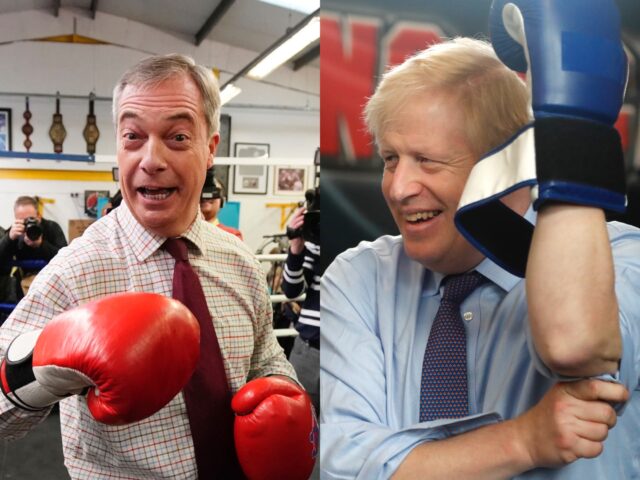A political alliance between Brexit leader Nigel Farage and former Prime Minister Boris Johnson would be a “nightmare” for the Conservative Party and eliminate any chance of fending off Labour in the next general election, polling expert Sir John Curtice said.
The dramatic resignation from parliament Boris Johnson last week, over continued controversy surrounding parties held in Downing Street against the very same draconian lockdown measures his government imposed upon the public, has opened the door, in the mind of Brexit’s Nigel Farage, for a potential political alliance to take on the Tory government of Rishi Sunak and to preserve the pair’s “Brexit legacy”.
While some Boris allies in Westminster, such as former cabinet minister Sir Jacob Rees-Mogg continue to predict a comeback for Johnson as the leader of the Conservative Party, Mr Farage said that it is unlikely given the former prime minister’s scorched earth exit from parliament. The Brexit leader suggested this week that BoJo’s only future in frontline British politics would be to join an outside party, such as the Farage-founded Reform UK, and attack the neo-liberal Conservatives from the political right.
A Farage-Boris partnership, according to veteran pollster Sir John Curtice, would serve as “nightmare” for the governing Conservative Party, which is struggling to regain public support and has been trailing the left-wing Labour by double digits in the polls for months.
“I think if you were to write a script for Mr Sunak’s worst nightmare, it would be Boris Johnson and Nigel Farage getting together to fight the next general election seriously,” Sir John told GB News.
“I think it would probably kill off whatever small chances the Conservatives have of still winning the next general election,” the political scientist added.
Yet, the pollster said that ultimately a Farage and Johnson party would be unlikely to meaningfully challenge the two-party dominance in parliament.
“Being able to bring an existing party down is not necessarily the same thing as providing a foundation for an alternative political force that would be capable of propelling Boris Johnson back to No.10”, Curtice said.
“That strikes me as a very long road indeed, just remember Change UK tried to strip off from the left of British politics. To do that from the right would be just as difficult.”
The road ahead for the potential alliance would be difficult given Britain’s first past the post voting system, which means that even if an outside party secures millions of votes, they might still be shut out of parliamentary representation, as was the case for Farage’s UKIP in 2015, when it secured 3.8 million votes but just won one seat in the parliament.
There are indications, however, that the Labour Party may be in favour of instituting proportional representation system should it come to power next year, meaning that while a Farage-Boris alliance may be shut out in the upcoming election, it could possibly be a major force in the following election.
Another major stumbling block would be Boris Johnson’s globalist positions taken during his premiership, championing left-wing globalist causes such as the green agenda net-zero scheme, opening up Britain to higher levels of immigration than before Brexit, and ushering in the highest tax burden in seven decades.
However, Mr Farage has suggested that these positions may not be articles of faith for Johnson, who has been something of a political chameleon in his quest for power, and that he could ultimately see the light, as it were, and “turn on a sixpence” on his previously professed “metro-liberal views”.

COMMENTS
Please let us know if you're having issues with commenting.